Sorted by date Results 26 - 37 of 37
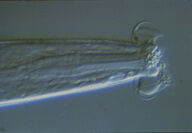
A few bad nematodes have maligned the whole class of creatures. While gardeners curse the nematodes that knot their carrots or riddle their tomatoes' roots with tumors, a much larger world of nematodes is at work defining our planet. These largely microscopic roundworms are so ubiquitous and varied that nematologist Nathan Cobb described them as a means of mapping Earth: "In short, if all the matter in the universe except the nematodes were swept away, our world would still be dimly recognizable...
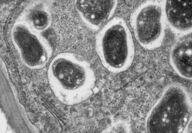
I have written a lot about nitrogen and its production in and out of the soil. My knowledge is always expanding because it's only recently that humanity has been rethinking how we make and apply this key nutrient. Recall that the Haber-Bosch Process makes atmospheric nitrogen that is available to plants via a chemical reaction using a fuel feedstock such as natural gas. This industrial process is neither efficient nor benevolent, but provides great short-term returns on poor land in which the...
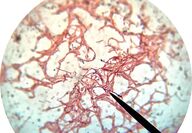
Have you ever wondered how an old growth forest can maintain such stupendous productivity without any inputs? Maybe you've tried to figure out how even younger forests have such resilience when the rains withhold their blessings. On a bigger scale, you might think there are some radical carbon sequestration plans that don't get serious consideration, or even mention. The answer to all of the above is, I am learning, the soil food web. I have been a compost enthusiast for decades. Whether I produ...
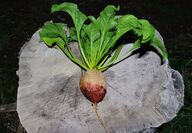
Root vegetables are a favored foodstuff in my gardens. The satisfying expansiveness of grain without its digestive challenges is reason enough, and the enhanced storage life is a bonus. Until this year I hadn't been able to grow conventional root vegetables like beets and carrots. Scorzonera, salsify, yacón and so on - no problem. Whether on Long or Harstine Islands, my soil had never the tilth for more conventional garden fare. In Long Island I was growing vegetables in rehabilitated lawn...
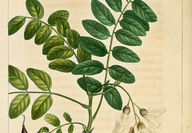
Folks have the unkindest things to say about locusts. Whether it's the insect scourge or the trees known as "honey" or "black" locust, there is abundant opprobrium for all these fine organisms. Locust insects, like deer, can be fattened on your food, especially grain, before you eat them. Their appetite for agricultural products is at the root of their unpopularity. Fried, smoked or dried, they have been a staple since at least John the Baptist dipped them in wild honey. Speaking of honey, the...
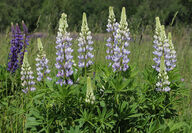
Two words are bandied about in horticulture to describe such a range of plants that one wonders whether they still have meaning. "Native" and "invasive" are both so widely used when speaking of big-leaf lupine (Lupinus polyphyllus) that it's easy to be confused about appropriate sitings and other plants in the genus. I was introduced to this West Coast native by Kirsten Rohde at Sahale during the 2021 Northwest Permaculture Convergence. She showed me a pollinator garden she had planted with a...
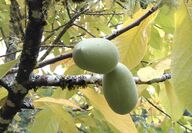
The 2021 Northwest Permaculture Convergence returned to the roots from whence it sprouted 14 years ago: Sahale, an intentional community in Tahuya that's part of the Goodenough intentional community project. This prodigal youth's cape was festooned with the burrs of change blown by the chaotic winds aswirl since 2020. Unsure what would sprout from them, the convergence shook them off across several fields and spaces in Sahale - and they sprouted into the first cultivars of a decentralized...
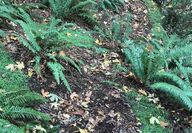
A fortuitous coincidence of video and book gave me a notion to stack some functions: producing biomass above and below ground, holding slopes and making fertilizer in situ. While watching Michael "Skeeter" Pilarski talk about alfalfa on YouTube, I recalled some advice from Patrick Whitefield's "How to Make a Forest Garden." Whitefield advised establishing "fertility plots" throughout your gardens and forest plantings. These need only two deep-rooting, perennial plants to produce copious amounts...
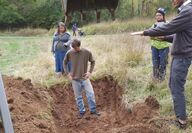
A permaculture convergence was my introduction to Cascadia. One of the best ways to hit the ground running is two to three days of immersion in a conference assembling many of the people and pursuits situated in a bioregion. The stated aim, according to the Northwest Permaculture Convergence, is to bring hundreds of diverse people together to share their approaches to "designing living environments, economic systems, and culture practices that thrive within ecologically sustainable limits."...
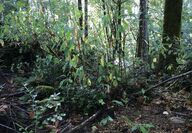
An obsession with air drainage led me to inadvertently create soil drainage. A hillside was covered with evergreen huckleberry, and the shrubs had been struggling beneath a bigleaf maple canopy for years. Fallen huckleberry leaves had piled up beneath dead undergrowth and grown moldy. I wanted to take advantage of the hillside's excellent drainage and thought little about sun exposure. Reasoning that moldy mats were an unhealthy circumstance for any kind of fruit tree I might plant, I thinned...
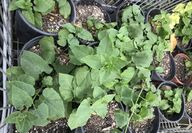
Spinach is a ubiquitous green in our culture, and grocery stores have ruined it for me. It's fragile when bundled and intolerant of mishandling. When spoiling in a clamshell of mixed greens, it quickly rots the lot. I briefly put it in everything from stews to pastries when I found it at a local Indian grocer in Queens, New York. Though not organic, it was in field-fresh condition. As I stood admiring it for the first time, no fewer than five South Asian housewives examined a couple of bundles...
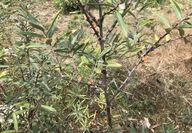
Since nature abhors a vacuum, I replace whatever I can with something discharging a similar function. On my property that means subbing out a lot of red alder. These pioneer trees are enriching cleared soil for western cedar, Douglas fir, western hemlock and bigleaf maple. Red alders fix nitrogen from the atmosphere so that adequate resources for forest succession will exist when they fall over or rot away from multiple alder borer wounds. All this rotting and falling can be dangerous, but the...